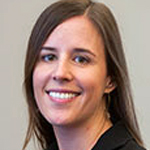This spring, the Supreme Court will consider whether freedom of religious expression applies to for-profit businesses, as well as individuals, in Hobby Lobby’s challenge to the Affordable Care Act’s contraception mandate.

Elizabeth Sepper, JD, associate professor of law at Washington University in St. Louis, discusses the case, saying that discrimination based on a person’s religious or sexual preferences is a serious harm to society.
For more from Sepper on this topic, including a video, go to news.wustl.edu/news/Pages/26499.aspx.
“If the Court decides that commercial businesses can indeed exercise religious freedom, in the name of that freedom businesses will demand exemptions from laws protecting consumers and employees from sex, race, and sexual orientation discrimination.”
“These anti-gay bills don’t protect conscience. They promote a single religious perspective. They ignore the many people of faith who support equality. What about the conscience of the employee who wants to follow the biblical injunction to ‘love your neighbor as yourself’ and is now told to deny services by his employer? What about the pro-equality business that has to accommodate employees who refuse to do their jobs when it comes to same-sex couples?”
“Proponents say allowing businesses to discriminate is actually good for gays, but acceptance of gay families comes from recognizing their equality under the law—not religious exemptions.”
“Discrimination based on a person’s sex or sexual orientation is a serious harm. It’s not just an inconvenience—whether we’re talking about wedding cakes or 401Ks.”
“Antidiscrimination law applies to theaters and restaurants, not because movies and dinners out are essential, but because our society recognizes that discrimination based on race, sex, religion, and increasingly sexual orientation is wrong.”